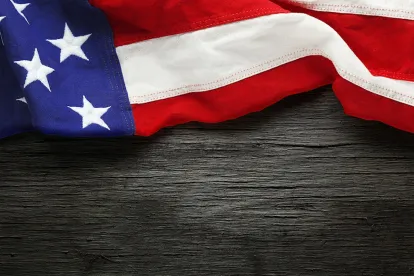August 11, 2022. The United States Department of Justice settled a case against an apparel manufacturer for falsely claiming to be a service-disabled, veteran-owned small business (SDVOSB) in order to win contracts with the U.S. Department of Agriculture and the U.S. Defense Logistics Agency. Under the terms of the settlement, the contractors and company owners paid almost $8 million. There was no whistleblower in this case, but if an employee of the apparel company had come forward about the false SDVOSB certification, they could have filed a qui tam lawsuit and been entitled to 15-25% of the government’s recovery.
The case centers around two co-owners and two organizations, with “shared employees, vendors, and equipment.” Sherman Barton and Christopher Neary co-owned VE Source LLC. Barton owned 51% of VE Source and is a service-disabled veteran. Neary additionally owned a company called Vertical Source, Inc (VSI), which is also an apparel company. According to the complaint, the government alleged that VE Source unlawfully obtained “more than $16 million in contracts that were set-aside for service-disabled, veteran-owned small businesses” by claiming to be an SDVOSB.
Fraud was woven into the threads of the apparel company from the start. According to the complaint, in 2009 two auto club buddies, Robert Pao and Ron Norton, learned about and wanted to take advantage of a “government stimulus package encouraging the use of SDVOSBs.” They approached Barton “to fill the role of service-disabled veteran” in their company, and when Barton objected to taking an active role in the business, they told him that “he would just need to be a 51% owner on paper.” Norton (not Barton) registered the company in Delaware. Per the complaint, both Barton and Neary were aware of the requirements for a service-disabled veteran to have 51% ownership and controlling activity for a company to qualify as an SDVOSB. Between various individuals falsely certifying that the company met the requirements for designation as a SDVOSB in different contracting systems, sharing employees between VE Source and VSI, Barton’s lack of involvement in day-to-day business operations, and skewed income arrangements vis-à-vis Barton’s 51% ownership, the government alleged that the contractors obtained contracts for which they were otherwise not eligible to bid.
As noted in the complaint in this case, “Under the [Federal Acquisition Regulations] and the [Small Business Administration] regulations, to be eligible to obtain a federal contract that is set aside for an SDVOSB, a company must be majority-owned (that is, at least 51% ownership) and controlled on a long-term and day-to-day basis by a service-disabled veteran.” Set-aside contracts are “set aside” by the government to financially reward economically-disadvantaged companies for providing services to the government. Indeed, per the SBA, “The federal government aims to award at least 3% of all federal contracting dollars to Service-Disabled Veteran-Owned Small Businesses (SDVOSB) each year.”
According to the office of the U.S. Attorney for the District of New Jersey, “By obtaining contracts for which they were ineligible, the government alleged that VE Source, Neary, and Barton undercut the express Congressional purpose in enacting laws intended to encourage the awards of federal contracts to businesses owned and controlled by service-disabled veterans.”
Can you report fraud if you are involved in a fraud scheme? Yes. Potential whistleblowers with knowledge of fraud, even if they are facilitating the fraud, should still come forward to protect themselves and taxpayer dollars.





 />i
/>i

